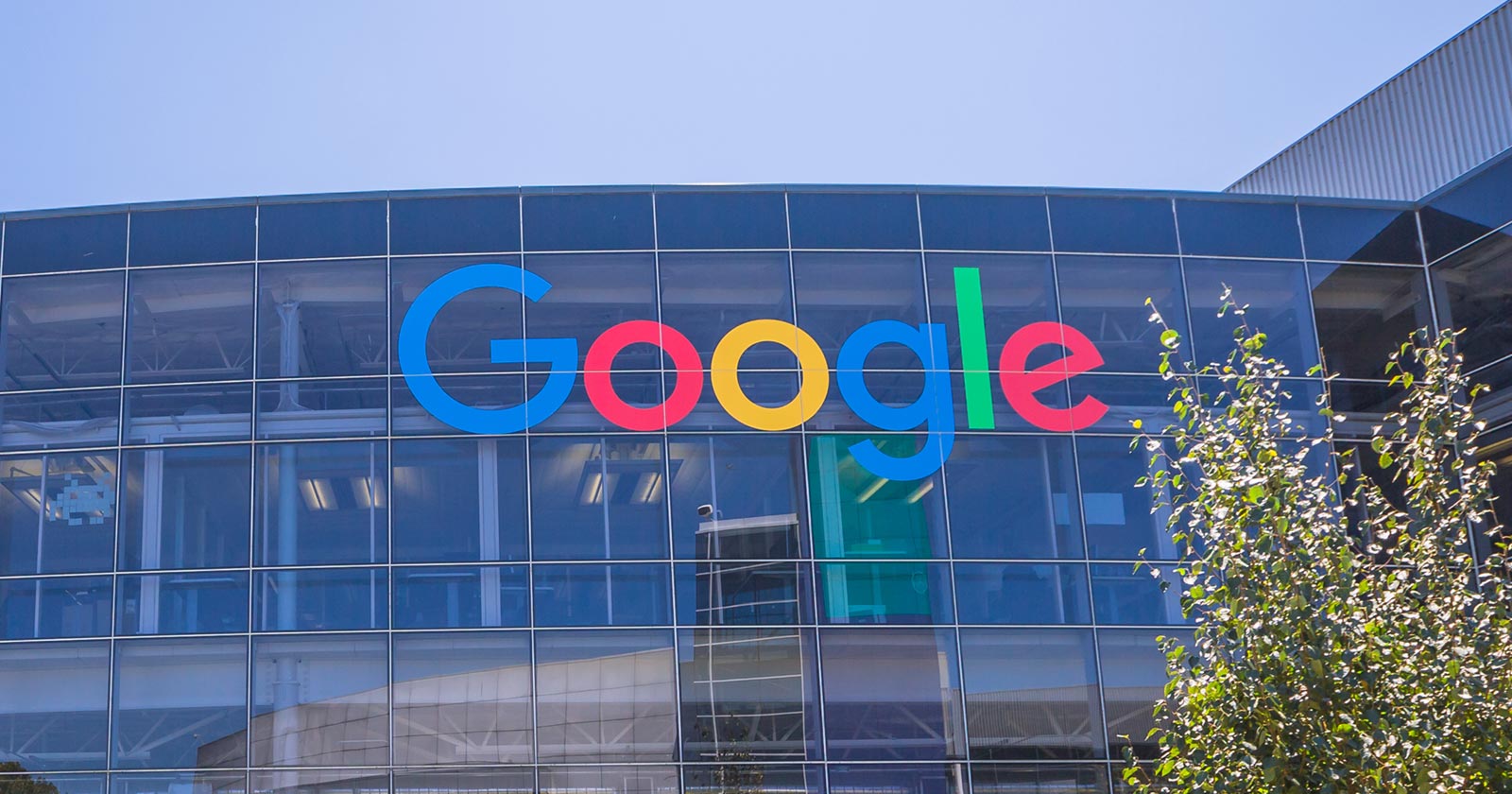SEO
Are Nofollow Links A Google Ranking Factor?

At face value, the average website user cannot tell whether a link is Nofollow or Dofollow.
You can copy or click on a Nofollow link just the same as they do any other link on the web.
Behind the scenes, however, there is quite a big difference.
Google considers Dofollow links a vote of confidence and trust for the information shared on that webpage. These are ranking factors.
Nofollow links are a bit more nuanced. As to whether or not Nofollow links are a ranking factor, that’s up for debate.
Some argue that Nofollow links have zero impact on ranking, and others claim that they still help, just not to the same degree that Dofollow links do.
What’s the truth?
Discover more truth about Google Ranking Factors.
The Claim: Nofollow Links As A Google Ranking Factor
In 2005, Google partnered with MSN Search and Yahoo to create an initiative to help fight comment link spam.
This new initiative was the Nofollow attribute.
Visit my <a href=”http://www.example.com/”>discount pharmaceuticals</a> site.
That comment would be transformed to
Visit my <a href=”http://www.example.com/” rel=”Nofollow”>discount pharmaceuticals</a> site.
The blog post stated that links with the tag would receive no “credit” when ranking search results. Anything with the tag would not be “followed” by Googlebot and passed much less SEO value. It was a simple concept.
Nofollows allowed webmasters to discourage comment link spam by making all of those links effectively worthless in the eyes of the bad actors placing them. Using Nofollows also ensured that sponsored links were not violating Google’s quality guidelines.
The business of buying and selling links took quite a hit.
Website owners started to blanket cover all external links with a Nofollow attribute to safeguard against Google updates. SEOs were not interested in Nofollow links.
Many SEOs jumped to the conclusion that Nofollow links are entirely worthless. Anyone who runs a blog has probably argued with a contributor about Nofollow links.
And it remained that way until 2020, when Google updated how it handles the Nofollow tag.
The Evidence: Nofollow Links As A Google Ranking Factor
To determine whether Nofollow links are a Google ranking factor, we need to understand what rel=”Nofollow” is and if Nofollow links pass PageRank or any other ranking factors to Google.
Rel Nofollow Defined
The rel=”Nofollow” attribute is an elemental microformat or a solution to a single problem. The solution was created by Matt Cutts (Google) and Jason Shellen (Blogger, Google).
“By adding rel=”Nofollow” to a hyperlink, a page indicates that the destination of that hyperlink should not be afforded any additional weight or ranking by user agents which perform link analysis upon web pages (e.g. search engines).”
The definition provides two primary use cases: user comments and links the author wishes to point to but avoids endorsing.
Much later, to assist with organization, Google added two additional attributes that perform the same function. They suggest that you:
- Use rel=”sponsored” for ads and sponsored links.
- Use rel=”ugc” for user-generated content that you don’t necessarily have control over, such as comments and forum posts.
- Use rel=”Nofollow” as a catch-all. Google advises developers to use rel=”Nofollow” anytime they don’t wish to endorse a site or don’t have control over the link.
Do Nofollow Tags Pass PageRank?
In 2009 (before the 2020 update), Matt Cutts was very clear in a blog post saying Nofollow links do not pass PageRank or anchor text.
It was in response to questions about an antiquated SEO practice known as PageRank sculpting.
The final word is, “The essential thing you need to know is that Nofollow links don’t help sites rank higher in Google search results.”
It seemed like the topic of Nofollow links as a ranking factor was fully resolved.
Google introduced changes to how it handles the Nofollow tag and reopened the debate in an algorithm update on March 1, 2020.
2020 Google Algorithm Update
Google’s official announcement stated, “For crawling and indexing purposes, Nofollow will become a hint as of March 1, 2020.”
Previously, Google treated Nofollow links as a command. Google did not crawl, or index links marked as Nofollow.
Now, Google says it will consider the Nofollow link attribute as a hint.
Martin Splitt, the developer advocate at Google, further clarified the update ramifications in response to a tweet.
Undoubtedly an important nuance.
More recently, Danny Sullivan, Google’s public search liaison, chimed in on Twitter to say the following.
 Image source: Danny Sullivan on Twitter
Image source: Danny Sullivan on TwitterIt sounds like the 2020 algorithm update allows for the crawling and indexing of Nofollow links. Still, the links are not associated with (endorsed by or given additional weight from) your site.
Our Verdict: Nofollow Links Are Not A Google Ranking Factor

Nofollow links are not a Google ranking factor. Their function is to tell search engines not to add additional weight or ranking.
Nofollow links are an improper way of blocking search engines from finding a webpage because Google may decide to crawl and index Nofollow links, but that’s all.
Whether or not the anchor text of Nofollow links holds any weight can not be confirmed and is still open for debate. I have yet to read a convincing argument or case study proving anything but correlation one way or the other.
That’s not to say you should avoid Nofollow links; they are a natural part of a robust digital marketing strategy.
Get the truth about all the myths and confirmed Google Ranking Factors.
Featured Image: Paulo Bobita/Search Engine Journal
SEO
Google On Hyphens In Domain Names

Google’s John Mueller answered a question on Reddit about why people don’t use hyphens with domains and if there was something to be concerned about that they were missing.
Domain Names With Hyphens For SEO
I’ve been working online for 25 years and I remember when using hyphens in domains was something that affiliates did for SEO when Google was still influenced by keywords in the domain, URL, and basically keywords anywhere on the webpage. It wasn’t something that everyone did, it was mainly something that was popular with some affiliate marketers.
Another reason for choosing domain names with keywords in them was that site visitors tended to convert at a higher rate because the keywords essentially prequalified the site visitor. I know from experience how useful two-keyword domains (and one word domain names) are for conversions, as long as they didn’t have hyphens in them.
A consideration that caused hyphenated domain names to fall out of favor is that they have an untrustworthy appearance and that can work against conversion rates because trustworthiness is an important factor for conversions.
Lastly, hyphenated domain names look tacky. Why go with tacky when a brandable domain is easier for building trust and conversions?
Domain Name Question Asked On Reddit
This is the question asked on Reddit:
“Why don’t people use a lot of domains with hyphens? Is there something concerning about it? I understand when you tell it out loud people make miss hyphen in search.”
And this is Mueller’s response:
“It used to be that domain names with a lot of hyphens were considered (by users? or by SEOs assuming users would? it’s been a while) to be less serious – since they could imply that you weren’t able to get the domain name with fewer hyphens. Nowadays there are a lot of top-level-domains so it’s less of a thing.
My main recommendation is to pick something for the long run (assuming that’s what you’re aiming for), and not to be overly keyword focused (because life is too short to box yourself into a corner – make good things, course-correct over time, don’t let a domain-name limit what you do online). The web is full of awkward, keyword-focused short-lived low-effort takes made for SEO — make something truly awesome that people will ask for by name. If that takes a hyphen in the name – go for it.”
Pick A Domain Name That Can Grow
Mueller is right about picking a domain name that won’t lock your site into one topic. When a site grows in popularity the natural growth path is to expand the range of topics the site coves. But that’s hard to do when the domain is locked into one rigid keyword phrase. That’s one of the downsides of picking a “Best + keyword + reviews” domain, too. Those domains can’t grow bigger and look tacky, too.
That’s why I’ve always recommended brandable domains that are memorable and encourage trust in some way.
Read the post on Reddit:
Read Mueller’s response here.
Featured Image by Shutterstock/Benny Marty
SEO
Reddit Post Ranks On Google In 5 Minutes

Google’s Danny Sullivan disputed the assertions made in a Reddit discussion that Google is showing a preference for Reddit in the search results. But a Redditor’s example proves that it’s possible for a Reddit post to rank in the top ten of the search results within minutes and to actually improve rankings to position #2 a week later.
Discussion About Google Showing Preference To Reddit
A Redditor (gronetwork) complained that Google is sending so many visitors to Reddit that the server is struggling with the load and shared an example that proved that it can only take minutes for a Reddit post to rank in the top ten.
That post was part of a 79 post Reddit thread where many in the r/SEO subreddit were complaining about Google allegedly giving too much preference to Reddit over legit sites.
The person who did the test (gronetwork) wrote:
“…The website is already cracking (server down, double posts, comments not showing) because there are too many visitors.
…It only takes few minutes (you can test it) for a post on Reddit to appear in the top ten results of Google with keywords related to the post’s title… (while I have to wait months for an article on my site to be referenced). Do the math, the whole world is going to spam here. The loop is completed.”
Reddit Post Ranked Within Minutes
Another Redditor asked if they had tested if it takes “a few minutes” to rank in the top ten and gronetwork answered that they had tested it with a post titled, Google SGE Review.
gronetwork posted:
“Yes, I have created for example a post named “Google SGE Review” previously. After less than 5 minutes it was ranked 8th for Google SGE Review (no quotes). Just after Washingtonpost.com, 6 authoritative SEO websites and Google.com’s overview page for SGE (Search Generative Experience). It is ranked third for SGE Review.”
It’s true, not only does that specific post (Google SGE Review) rank in the top 10, the post started out in position 8 and it actually improved ranking, currently listed beneath the number one result for the search query “SGE Review”.
Screenshot Of Reddit Post That Ranked Within Minutes
Anecdotes Versus Anecdotes
Okay, the above is just one anecdote. But it’s a heck of an anecdote because it proves that it’s possible for a Reddit post to rank within minutes and get stuck in the top of the search results over other possibly more authoritative websites.
hankschrader79 shared that Reddit posts outrank Toyota Tacoma forums for a phrase related to mods for that truck.
Google’s Danny Sullivan responded to that post and the entire discussion to dispute that Reddit is not always prioritized over other forums.
Danny wrote:
“Reddit is not always prioritized over other forums. [super vhs to mac adapter] I did this week, it goes Apple Support Community, MacRumors Forum and further down, there’s Reddit. I also did [kumo cloud not working setup 5ghz] recently (it’s a nightmare) and it was the Netgear community, the SmartThings Community, GreenBuildingAdvisor before Reddit. Related to that was [disable 5g airport] which has Apple Support Community above Reddit. [how to open an 8 track tape] — really, it was the YouTube videos that helped me most, but it’s the Tapeheads community that comes before Reddit.
In your example for [toyota tacoma], I don’t even get Reddit in the top results. I get Toyota, Car & Driver, Wikipedia, Toyota again, three YouTube videos from different creators (not Toyota), Edmunds, a Top Stories unit. No Reddit, which doesn’t really support the notion of always wanting to drive traffic just to Reddit.
If I guess at the more specific query you might have done, maybe [overland mods for toyota tacoma], I get a YouTube video first, then Reddit, then Tacoma World at third — not near the bottom. So yes, Reddit is higher for that query — but it’s not first. It’s also not always first. And sometimes, it’s not even showing at all.”
hankschrader79 conceded that they were generalizing when they wrote that Google always prioritized Reddit. But they also insisted that that didn’t diminish what they said is a fact that Google’s “prioritization” forum content has benefitted Reddit more than actual forums.
Why Is The Reddit Post Ranked So High?
It’s possible that Google “tested” that Reddit post in position 8 within minutes and that user interaction signals indicated to Google’s algorithms that users prefer to see that Reddit post. If that’s the case then it’s not a matter of Google showing preference to Reddit post but rather it’s users that are showing the preference and the algorithm is responding to those preferences.
Nevertheless, an argument can be made that user preferences for Reddit can be a manifestation of Familiarity Bias. Familiarity Bias is when people show a preference for things that are familiar to them. If a person is familiar with a brand because of all the advertising they were exposed to then they may show a bias for the brand products over unfamiliar brands.
Users who are familiar with Reddit may choose Reddit because they don’t know the other sites in the search results or because they have a bias that Google ranks spammy and optimized websites and feel safer reading Reddit.
Google may be picking up on those user interaction signals that indicate a preference and satisfaction with the Reddit results but those results may simply be biases and not an indication that Reddit is trustworthy and authoritative.
Is Reddit Benefiting From A Self-Reinforcing Feedback Loop?
It may very well be that Google’s decision to prioritize user generated content may have started a self-reinforcing pattern that draws users in to Reddit through the search results and because the answers seem plausible those users start to prefer Reddit results. When they’re exposed to more Reddit posts their familiarity bias kicks in and they start to show a preference for Reddit. So what could be happening is that the users and Google’s algorithm are creating a self-reinforcing feedback loop.
Is it possible that Google’s decision to show more user generated content has kicked off a cycle where more users are exposed to Reddit which then feeds back into Google’s algorithm which in turn increases Reddit visibility, regardless of lack of expertise and authoritativeness?
Featured Image by Shutterstock/Kues
SEO
WordPress Releases A Performance Plugin For “Near-Instant Load Times”

WordPress released an official plugin that adds support for a cutting edge technology called speculative loading that can help boost site performance and improve the user experience for site visitors.
Speculative Loading
Rendering means constructing the entire webpage so that it instantly displays (rendering). When your browser downloads the HTML, images, and other resources and puts it together into a webpage, that’s rendering. Prerendering is putting that webpage together (rendering it) in the background.
What this plugin does is to enable the browser to prerender the entire webpage that a user might navigate to next. The plugin does that by anticipating which webpage the user might navigate to based on where they are hovering.
Chrome lists a preference for only prerendering when there is an at least 80% probability of a user navigating to another webpage. The official Chrome support page for prerendering explains:
“Pages should only be prerendered when there is a high probability the page will be loaded by the user. This is why the Chrome address bar prerendering options only happen when there is such a high probability (greater than 80% of the time).
There is also a caveat in that same developer page that prerendering may not happen based on user settings, memory usage and other scenarios (more details below about how analytics handles prerendering).
The Speculative Loading API solves a problem that previous solutions could not because in the past they were simply prefetching resources like JavaScript and CSS but not actually prerendering the entire webpage.
The official WordPress announcement explains it like this:
Introducing the Speculation Rules API
The Speculation Rules API is a new web API that solves the above problems. It allows defining rules to dynamically prefetch and/or prerender URLs of certain structure based on user interaction, in JSON syntax—or in other words, speculatively preload those URLs before the navigation. This API can be used, for example, to prerender any links on a page whenever the user hovers over them.”
The official WordPress page about this new functionality describes it:
“The Speculation Rules API is a new web API… It allows defining rules to dynamically prefetch and/or prerender URLs of certain structure based on user interaction, in JSON syntax—or in other words, speculatively preload those URLs before the navigation.
This API can be used, for example, to prerender any links on a page whenever the user hovers over them. Also, with the Speculation Rules API, “prerender” actually means to prerender the entire page, including running JavaScript. This can lead to near-instant load times once the user clicks on the link as the page would have most likely already been loaded in its entirety. However that is only one of the possible configurations.”
The new WordPress plugin adds support for the Speculation Rules API. The Mozilla developer pages, a great resource for HTML technical understanding describes it like this:
“The Speculation Rules API is designed to improve performance for future navigations. It targets document URLs rather than specific resource files, and so makes sense for multi-page applications (MPAs) rather than single-page applications (SPAs).
The Speculation Rules API provides an alternative to the widely-available <link rel=”prefetch”> feature and is designed to supersede the Chrome-only deprecated <link rel=”prerender”> feature. It provides many improvements over these technologies, along with a more expressive, configurable syntax for specifying which documents should be prefetched or prerendered.”
See also: Are Websites Getting Faster? New Data Reveals Mixed Results
Performance Lab Plugin
The new plugin was developed by the official WordPress performance team which occasionally rolls out new plugins for users to test ahead of possible inclusion into the actual WordPress core. So it’s a good opportunity to be first to try out new performance technologies.
The new WordPress plugin is by default set to prerender “WordPress frontend URLs” which are pages, posts, and archive pages. How it works can be fine-tuned under the settings:
Settings > Reading > Speculative Loading
Browser Compatibility
The Speculative API is supported by Chrome 108 however the specific rules used by the new plugin require Chrome 121 or higher. Chrome 121 was released in early 2024.
Browsers that do not support will simply ignore the plugin and will have no effect on the user experience.
Check out the new Speculative Loading WordPress plugin developed by the official core WordPress performance team.
How Analytics Handles Prerendering
A WordPress developer commented with a question asking how Analytics would handle prerendering and someone else answered that it’s up to the Analytics provider to detect a prerender and not count it as a page load or site visit.
Fortunately both Google Analytics and Google Publisher Tags (GPT) both are able to handle prerenders. The Chrome developers support page has a note about how analytics handles prerendering:
“Google Analytics handles prerender by delaying until activation by default as of September 2023, and Google Publisher Tag (GPT) made a similar change to delay triggering advertisements until activation as of November 2023.”
Possible Conflict With Ad Blocker Extensions
There are a couple things to be aware of about this plugin, aside from the fact that it’s an experimental feature that requires Chrome 121 or higher.
A comment by a WordPress plugin developer that this feature may not work with browsers that are using the uBlock Origin ad blocking browser extension.
Download the plugin:
Speculative Loading Plugin by the WordPress Performance Team
Read the announcement at WordPress
Speculative Loading in WordPress
See also: WordPress, Wix & Squarespace Show Best CWV Rate Of Improvement
-

 WORDPRESS7 days ago
WORDPRESS7 days ago10 WordPress Influencers to Follow in 2024 – WordPress.com News
-

 MARKETING7 days ago
MARKETING7 days agoFeeling Stuck: What to Do When You Don’t Know What to Do
-

 PPC6 days ago
PPC6 days agoCompetitor Monitoring: 7 ways to keep watch on the competition
-

 PPC5 days ago
PPC5 days agoA History of Google AdWords and Google Ads: Revolutionizing Digital Advertising & Marketing Since 2000
-

 WORDPRESS6 days ago
WORDPRESS6 days agoThrive Architect vs Divi vs Elementor
-

 SEARCHENGINES6 days ago
SEARCHENGINES6 days agoMore Google March 2024 Core Update Ranking Volatility
-

 PPC6 days ago
PPC6 days ago31 Ready-to-Go Mother’s Day Messages for Social Media, Email, & More
-

 WORDPRESS5 days ago
WORDPRESS5 days agoTurkish startup ikas attracts $20M for its e-commerce platform designed for small businesses

![Are Nofollow Links A Google Ranking Factor? Ranking Factors: Fact Or Fiction? Let’s Bust Some Myths! [Ebook]](https://articles.entireweb.com/wp-content/uploads/2022/08/Fact-Or-Fiction-Lets-Bust-Some-Myths-Ebook.jpg)














You must be logged in to post a comment Login